Abstract
OBJECTIVES--To develop a method for conducting postal surveys of patients' views and experiences of general practitioner care and to produce an off the shelf tool for general practice audit. DESIGN--Prospective study of performance of two patient questionnaires assessing accessibility to services (questionnaire 1) and interpersonal aspects of care (questionnaire 2) in comparing general practices. SETTING--Five general practices in Newcastle upon Tyne. PATIENTS--3800 patients aged 16 and over, 1900 randomly drawn from family health services authority lists for each practice (questionnaire 1) and 1900 drawn from practice records (questionnaire 2). MAIN MEASURES--Response rates and technical evaluation of performance of the questionnaires (reliability, item nonresponse, ineligible response, sensitivity, and validity). RESULTS--Response rate for questionnaire 1 was 77% (range 69% to 83%) and to questionnaire 2, 82% (77% to 86%). Analysis of respondents and nonrespondents showed that significantly more women, people aged 65 or more, and those consulting in the past six months returned the questionnaires. Technical evaluation indicated good face validity and content validity and good internal consistency. CONCLUSIONS--A standardised off the shelf tool for audit was developed, and it will be a valuable model for future audits in general practice.
Full text
PDF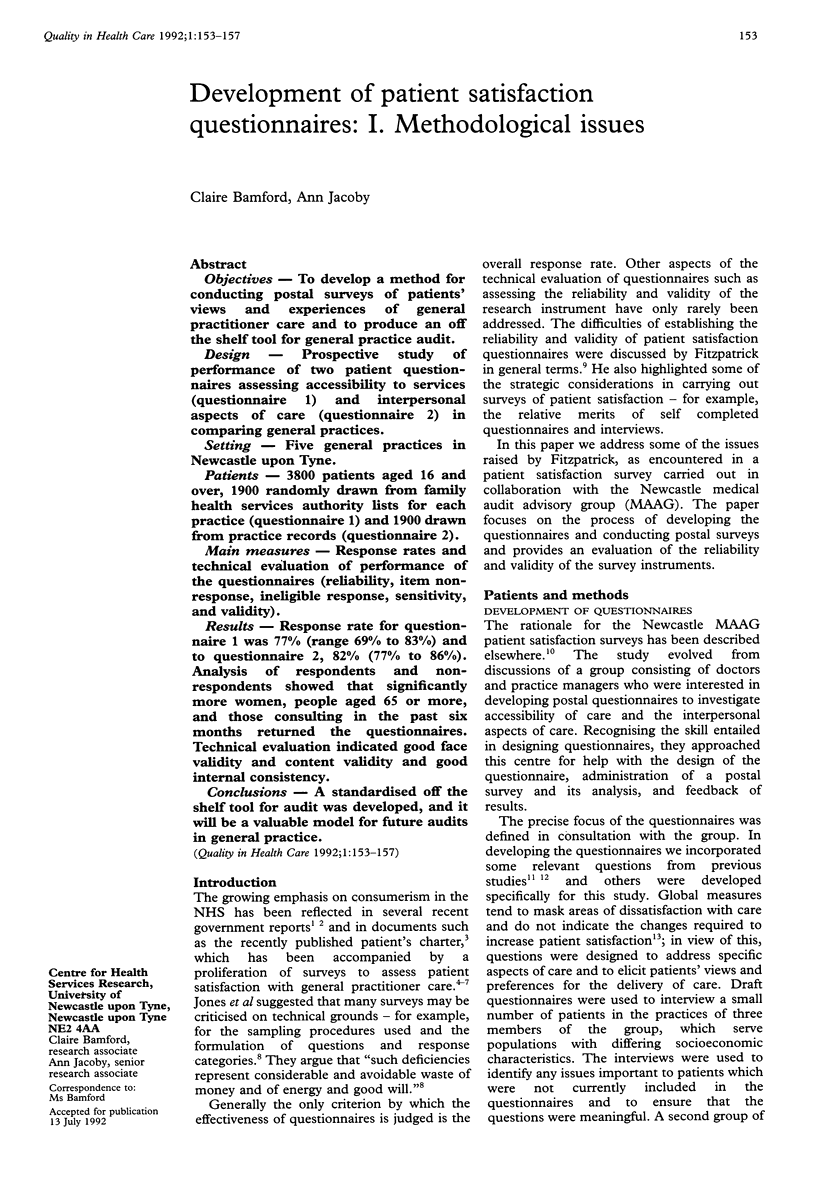
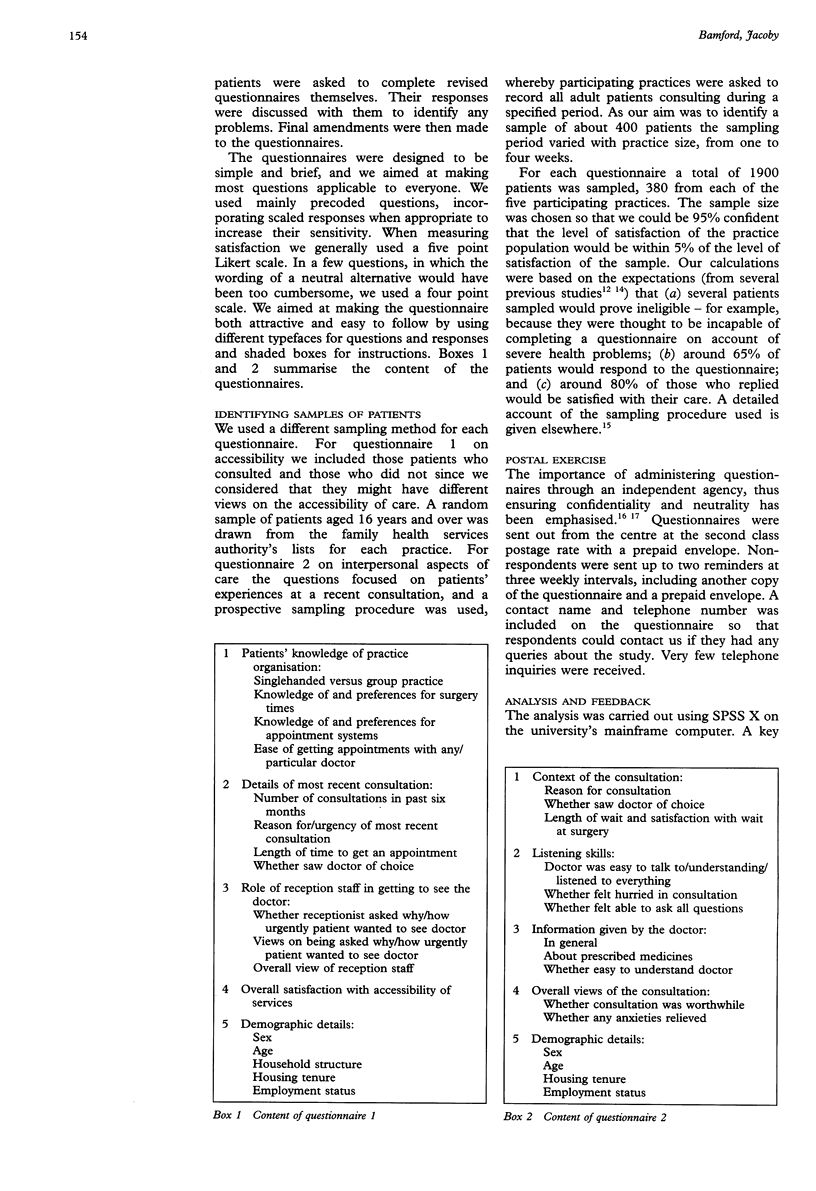
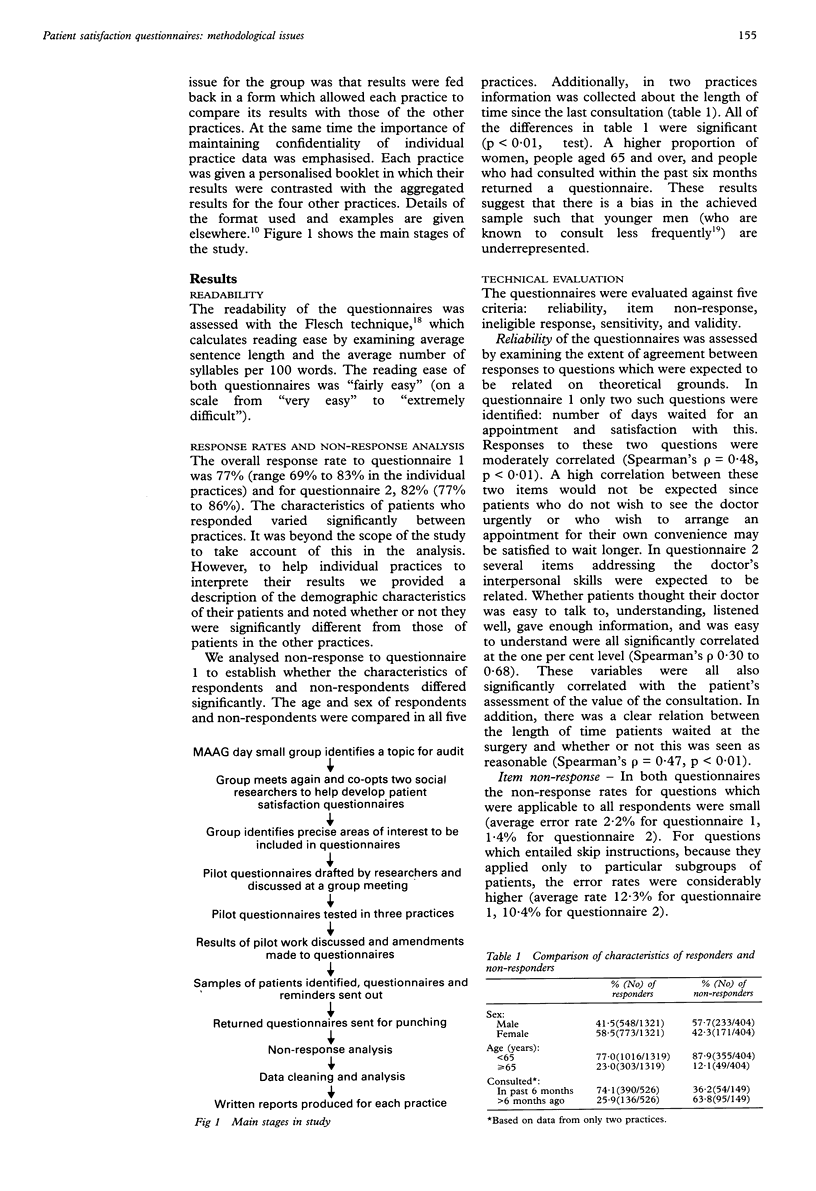
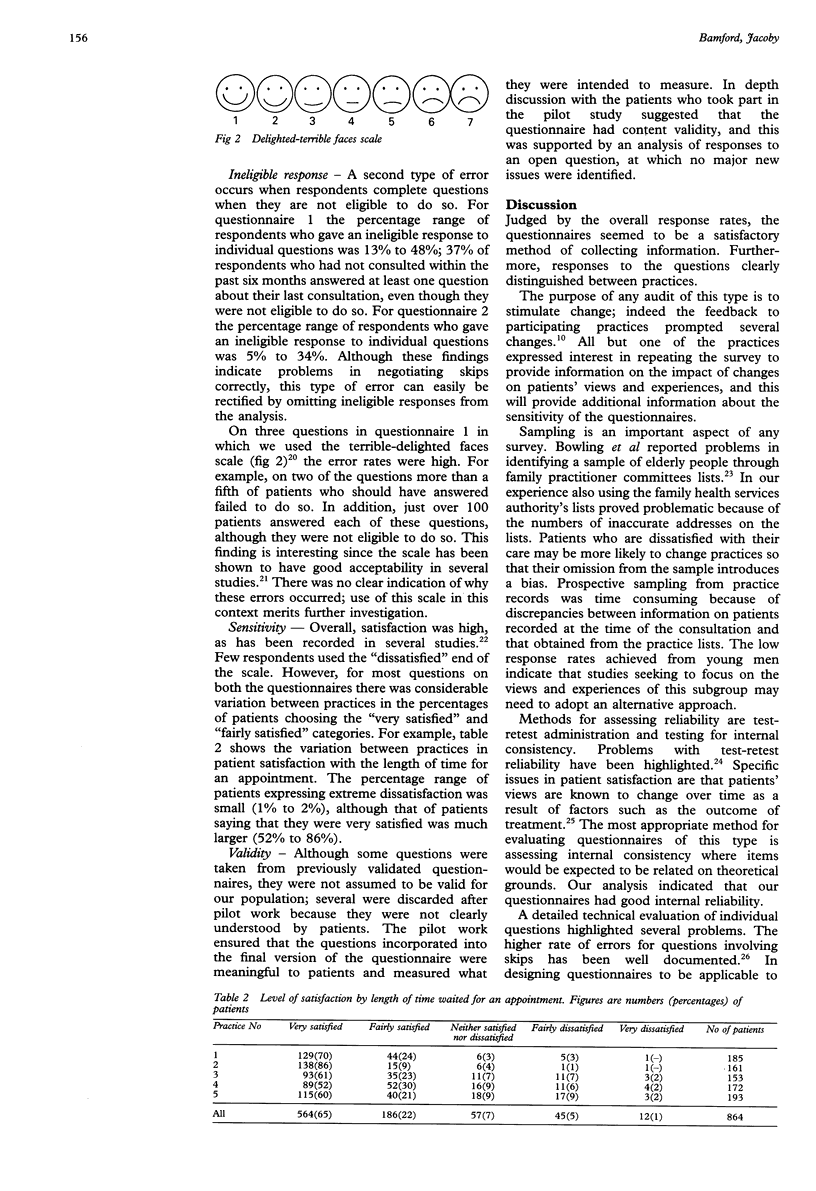
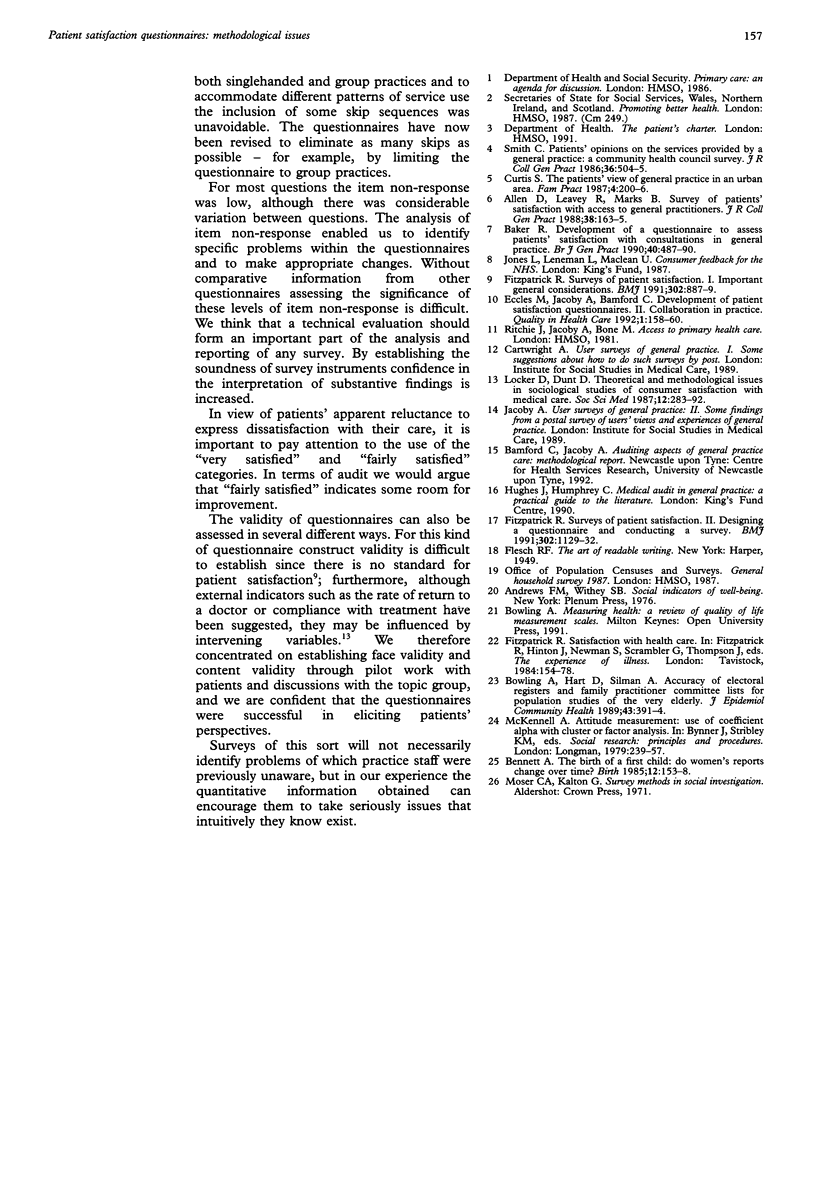
Selected References
These references are in PubMed. This may not be the complete list of references from this article.
- Allen D., Leavey R., Marks B. Survey of patients' satisfaction with access to general practitioners. J R Coll Gen Pract. 1988 Apr;38(309):163–165. [PMC free article] [PubMed] [Google Scholar]
- Baker R. Development of a questionnaire to assess patients' satisfaction with consultations in general practice. Br J Gen Pract. 1990 Dec;40(341):487–490. [PMC free article] [PubMed] [Google Scholar]
- Bennett A. The birth of a first child: do women's reports change over time? Birth. 1985 Fall;12(3):153–158. doi: 10.1111/j.1523-536x.1985.tb00954.x. [DOI] [PubMed] [Google Scholar]
- Bowling A., Hart D., Silman A. Accuracy of electoral registers and Family Practitioner Committee lists for population studies of the very elderly. J Epidemiol Community Health. 1989 Dec;43(4):391–394. doi: 10.1136/jech.43.4.391. [DOI] [PMC free article] [PubMed] [Google Scholar]
- Curtis S. E. The patient's view of general practice in an urban area. Fam Pract. 1987 Sep;4(3):200–206. doi: 10.1093/fampra/4.3.200. [DOI] [PubMed] [Google Scholar]
- Eccles M., Jacoby A., Bamford C. Development of patient satisfaction questionnaires: II. Collaboration in practice. Qual Health Care. 1992 Sep;1(3):158–160. doi: 10.1136/qshc.1.3.158. [DOI] [PMC free article] [PubMed] [Google Scholar]
- Fitzpatrick R. Surveys of patient satisfaction: II--Designing a questionnaire and conducting a survey. BMJ. 1991 May 11;302(6785):1129–1132. doi: 10.1136/bmj.302.6785.1129. [DOI] [PMC free article] [PubMed] [Google Scholar]
- Locker D., Dunt D. Theoretical and methodological issues in sociological studies of consumer satisfaction with medical care. Soc Sci Med. 1978 Jul;12(4A):283–292. [PubMed] [Google Scholar]


